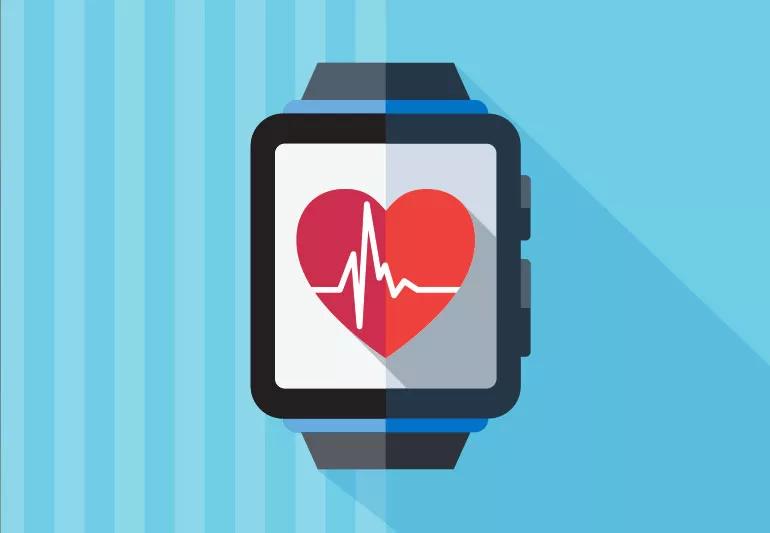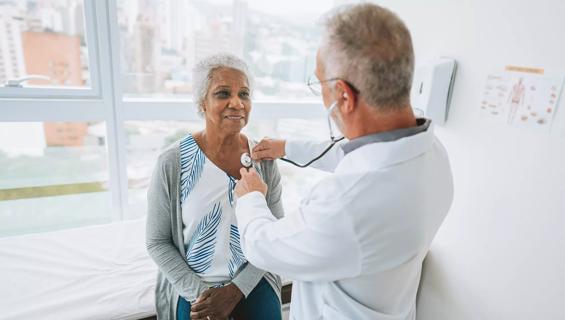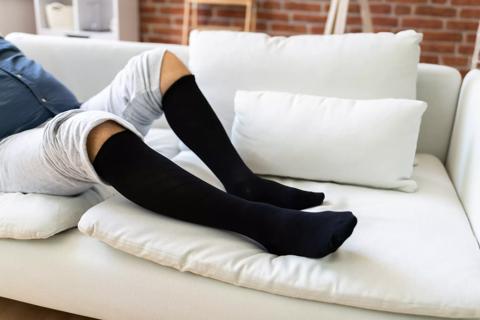Advertisement
This combo could signal a heart rhythm problem

You may be ecstatic that you finally got your blood pressure lowered, only to notice your heart seems to be racing — ALL THE TIME. So what gives when you successfully hit the magic number of <120/<80 mm, but your heart rate remains high?
Advertisement
Cleveland Clinic is a non-profit academic medical center. Advertising on our site helps support our mission. We do not endorse non-Cleveland Clinic products or services. Policy
Heart rhythm specialist Tyler Taigen, MD, says sometimes this is normal and sometimes it’s not.
Sometimes blood pressure and high heart rate occurs momentarily. For example, Dr. Taigen explains, when we stand up:
However, that phenomenon is short-lived. When the heart rate stays consistently high while blood pressure is low, there may be something problematic going on.
When the heart’s electrical circuits aren’t properly functioning, the result can be a high heart rate coupled with low blood pressure, Dr. Taigen explains.
“When the heart has a fast, abnormal rhythm — anything over 100, but closer to 160 beats per minute — it can’t adequately fill with blood. The chaotic electrical signaling causes the heart muscles to be out of sync between the top and bottom chambers,” he says. “Less efficiency in the heart means less blood is pumping through the body — which means low blood pressure.”
You may not know your heart rhythm is pacing more like a rabbit than a tortoise. But all that racing and ineffective blood pumping result in oxygen-deprived organs and tissues. It’s worth a trip to the doctor when you:
When this happens, electrophysiologists first try and slow the heart rate using medicines, Dr. Taigen says. “But these medicines, known as beta-blockers or calcium channel blockers, can also drop the blood pressure,” he notes. “Quite often, there’s not much room for blood pressure to go lower.”
If your blood pressure is too low for medications, a procedure called direct current cardioversion can get the rhythm back to normal.
“With this procedure, we put pads on the front and back of the chest and sedate the patient for a minute or two,” Dr. Taigen explains. “When they are asleep, we deliver a shock that stops the heart from beating irregularly, so the natural heartbeat resumes.”
Once the heart rhythm is back to normal, an electrophysiologist determines if a more permanent treatment is needed. These could include:
Advertisement
Heart rhythm problems that affect the upper heart chamber (atrium) can put you at an increased risk for stroke, heart failure or death. Here’s why:
If you’re diagnosed with an irregular heart rhythm, you may need to take blood-thinning medications, plus one of the treatments above, to decrease your risk of stroke. Your doctor can help you get the right care to keep everything steady and stable — so the only time your heart is racing is while you’re watching “Stranger Things.”
Advertisement
Learn more about our editorial process.
Advertisement

Factors like temperature, energy levels and sleep quality play a role in determining whether working out in the morning or evening is best for you

Obesity, age and preexisting heart conditions can all raise your risk of cardiovascular disease during pregnancy

Xylitol in processed food can increase risk of heart attack and stroke — but there’s no danger in xylitol in oral care products

If your provider has ruled out a serious cause, you can treat chest pain at home with antacids, inhalers or anti-inflammatory medications

Walking is a great goal, but how many steps are best for you depends on factors like your fitness level and age

Research shows a strong association between rheumatoid arthritis and heart issues

Eating more natural, whole foods can lower your risk of heart and cardiovascular diseases

First things first — slowly sit or lie down

Focus on your body’s metabolic set point by eating healthy foods, making exercise a part of your routine and reducing stress

PFAS chemicals may make life easier — but they aren’t always so easy on the human body

While there’s little risk in trying this hair care treatment, there isn’t much science to back up the claims